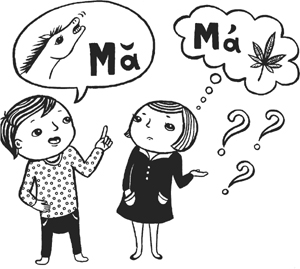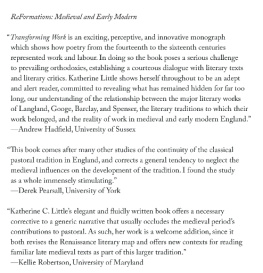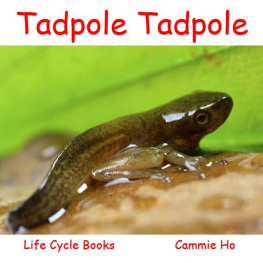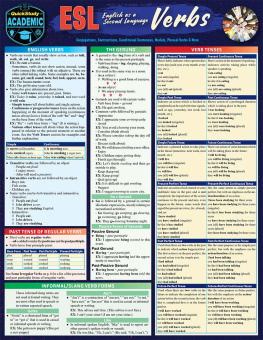Penguin Books
Biting the Wax Tadpole
Elizabeth Little is a writer and editor living in New York City. She has worked as a literary agent and as a writer and editor for the travel guide Lets Go: China , and her writing has appeared in The New York Times. This is her first book.
Elizabeth Little
Biting the Wax Tadpole
Misadventures of an Armchair Linguist

PENGUIN BOOKS
PENGUIN BOOKS
Published by the Penguin Group
Penguin Books Ltd, 80 Strand, London WC2R 0RL , England
Penguin Group (USA) Inc., 375 Hudson Street, New York, New York 10014, USA
Penguin Group (Canada), 90 Eglinton Avenue East, Suite 700, Toronto, Ontario, Canada M4P 2Y3
(a division of Pearson Penguin Canada Inc.)
Penguin Ireland, 25 St Stephens Green, Dublin 2, Ireland (a division of Penguin Books Ltd)
Penguin Group (Australia), 250 Camberwell Road, Camberwell, Victoria 3124, Australia
(a division of Pearson Australia Group Pty Ltd)
Penguin Books India Pvt Ltd, 11 Community Centre, Panchsheel Park, New Delhi 110 017, India
Penguin Group (NZ), 67 Apollo Drive, Rosedale, North Shore 0632, New Zealand
(a division of Pearson New Zealand Ltd)
Penguin Books (South Africa) (Pty) Ltd, 24 Strudee Avenue, Rosebank,
Johannesburg 2196, South Africa
Penguin Books Ltd, Registered Offices: 80 Strand, London WC2R 0RL , England
www.penguin.com
First published by Melville House Publishing 2007
Published by Penguin Books 2008
1
Copyright Elizabeth Little, 2007
Illustrations copyright Ayumi Piland, 2007
All rights reserved
The moral right of the author has been asserted
Except in the United States of America, this book is sold subject to the condition that it shall not, by
way of trade or otherwise, be lent, re-sold, hired out, or otherwise circulated without the publishers
prior consent in any form of binding or cover other than that in which it is published and without a
similar condition including this condition being imposed on the subsequent purchaser
978-0-14-191984-3
For my mother
Contents
In the summer of 2000, I was in Nanchang, a fairly large city in south-east China that isnt exactly what Id call a popular tourist destination. Id spent the day on the road, stuck in the back of a sweltering bus that had broken down not once, but twice, and I hadnt eaten anything all day but some stale Chips Ahoy cookies Id found in the bottom of my backpack. I was tired and cranky in the way that only those afflicted with bad luck and low blood sugar can be.
By the time I got into town, I wanted one thing, and one thing only: a plate of dumplings the size of my head.
As soon as I got off the bus, I dropped my pack at a hotel and went to the first restaurant I saw. I knew from experience that it was pointless to try to decipher a Chinese menu in my exhausted state, so I swallowed my pride, went up to the hostess, and very politely asked for an English menu.
N yu miyu yngwn de cidan?
The hostess responded with an expression that, sadly, I knew all too well: she had no idea what I was trying to say.
And I knew exactly what the problem was.
When you begin a course in Mandarin, one of the first things you learn is that the meaning of any given sound changes depending on your tone. Anyone with a mother is, of course, familiar with the linguistic peril of tone, but different languages use tone differently. In English, tone or, more properly, intonation usually applies to an entire thought: we pitch our voices up at the end of a question or we use monotone to convey sarcasm. In Chinese, however, tone can change the meaning of the words themselves. A single syllable ma, to use the standard example can mean mother, hemp, horse or scold, depending on whether the tone of the word holds steady, rises, dips or falls.
When I got to China, I discovered that the first tone, the hold-steady tone, gave me all kinds of trouble. To really nail it, you have to speak it much higher than you expect, until you almost feel like youre singing the word. Unfortunately, singing isnt exactly my forte: the higher register of my voice can kindly be called shrill. So every time I had to say a word with that troublesome high hold-steady tone, I would hold back a bit and try to get away with a nice, non-offensive contralto.

Pitch Problems
Underestimating the importance of tone in Chinese is easy when faced with an example like ma. I mean, whats the worst that can happen, right? Someone thinks that youre talking about hemp when you mean to be talking about a horse? At the very worst, it provides a bit of plausible deniability in the event of a run-in with local narcotics officials. Other words arent quite so harmless, though. Take the sound cao. Cao shows up all over the place in non-threatening Chinese compounds like cottage, prairie and lawn in the third tone, the low dipping tone, cao can mean grass. But be careful, because in the fourth tone, the falling tone, co means something very different: to fuck.
Which meant that every time I tried to say something with this first tone in particular, the dn of cidn I got it awesomely wrong. Like, first-round-of- American Idol wrong. So it wasnt at all surprising that the nice woman at the hostess podium had no idea what I was saying.
It had been happening for over a month at that point.
Before I travelled to China, Id studied Mandarin for a year two hours a day, five days a week and Id thought I was well prepared. I knew how to ask directions to a train station, bus stop or Internet caf. I was ready to yell at cab drivers and politely decline souvenirs, solicitations and marriage proposals. But once I got there, my brain was fogged full of semi- familiar words and phrases, riddled with grammatical minutiae. Nothing came out the way I intended it to. My speech was an explosive mess.
Id somehow managed to keep my spirits up for nearly a month as I blustered about, more often than not resorting to pantomime and occasionally to outright bribery to get a point across. Id bungled conversations with government agencies, underground religious groups and small children who were convinced I was some kind of monster, but until I got to Nanchang, Id managed to keep my optimism intact, usually by reminding myself that I would never have to see these witnesses to my linguistic humiliation again. But that nameless, menuless eatery finally did me in. I was willing to admit defeat: I was total crap at Chinese. Not for the first time, I felt the bone-deep weariness of being a stranger in a strange-language land.
But Id come this far, so I made one last, desperate effort ciDN! pitching my voice so high on the last syllable that I sounded like Id been punched in the stomach.
A silence fell over the restaurant. The hostess furrowed her brow, the diners exchanged puzzled glances over their plates, and I resigned myself to yet another night alone in my hotel room, dining on chocolate chips and failure. But then, out of nowhere, a waitress in the back yelled Cidn! Zhige hn d de wigorn yo yg cidn!
The huge foreigner wants a menu. I was so pleased Id been understood, I almost forgot to blush.
Those of us in possession of the wallflower gene know that the world is full of special hells: communal showers; mandatory company parties; high school. And then theres travel. Travels tricky, because unlike, say, high school, it can actually be simultaneously enjoyable and enlightening. But learning to speak a new language and engage with a new culture is a veritable minefield of potential misunderstandings and compromising situations. When you travel, youre not just paying for the privilege of seeing and experiencing new things, but also for the opportunity to make an ass of yourself.
Next page














